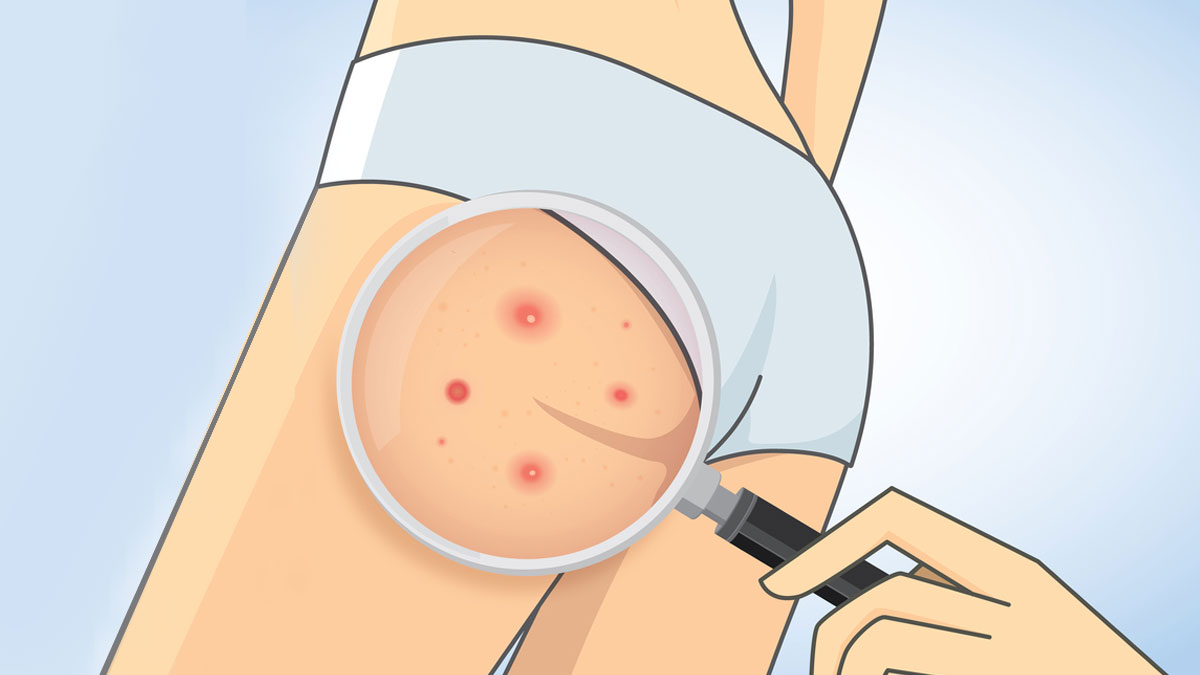Is Keratosis Pilaris Contagious? Unraveling the Truth
As a beautician, understanding various skin conditions is crucial to providing informed care to your clients. One question that often arises is: is keratosis pilaris contagious? This common skin condition, characterized by small, rough bumps, usually on the arms, thighs, cheeks, or buttocks, can be confusing for many. Let's delve into the details and dispel some myths surrounding it.

Understanding Keratosis Pilaris
Before addressing its contagious nature, it's essential to understand what keratosis pilaris actually is. This condition occurs due to a buildup of keratina protein protecting the skin from infections. When keratin blocks hair follicles, it results in the rough, bumpy patches known as keratosis pilaris. Though it can affect anyone, it is especially prevalent in those with dry skin or eczema.
Commonly referred to as 'chicken skin' due to its appearance, keratosis pilaris is generally harmless and doesn't cause pain or itching. However, its aesthetic impact can be bothersome, making it a frequent topic of concern among clients seeking smoother skin.
Is Keratosis Pilaris Contagious? Debunking the Myths
The straightforward answer to whether keratosis pilaris is contagious is no. This skin condition is not caused by bacteria, viruses, or fungi, which are common triggers for contagious skin diseases. Instead, it is a genetic condition, often inherited from family members. It means that if someone in your family has it, you might be more likely to develop it as well, but you cannot 'catch' it from someone else.
Understanding this can ease the minds of those worried about spreading or contracting the condition through personal contact or shared items. It's a significant point to communicate to clients who might feel self-conscious or worried about their condition.
Effective Treatments and Management
While keratosis pilaris isn't contagious, many seek treatment to improve their skin's appearance. Here are some professional tips and treatments to consider:
Exfoliation and Moisturization
Regular exfoliation can help remove the excess keratin and dead skin cells, smoothing the skin's texture. However, it's important to be gentle to avoid irritation. Pairing exfoliation with a good moisturizer can significantly improve the skin's appearance.
Specialized Skincare Products
Products containing lactic acid, salicylic acid, or urea can be particularly effective. These ingredients help to exfoliate and hydrate the skin, reducing the appearance of bumps. For more detailed guidance, check out our article on full body breakouts.
Professional Treatments
In-office treatments such as chemical peels or laser therapy can also help manage keratosis pilaris. Consulting with a dermatologist can provide personalized solutions that cater to specific skin types and conditions.
Common Misconceptions About Keratosis Pilaris
Several misconceptions surround keratosis pilaris, leading to unnecessary concern:
Myth 1: It indicates poor hygiene.
Fact: Keratosis pilaris is unrelated to hygiene and is purely a genetic condition.
Myth 2: It's the same as acne.
Fact: Although it may look similar, keratosis pilaris is not acne. The causes and treatments differ significantly.
Myth 3: It's curable.
Fact: While there are treatments to manage the appearance, there is no cure; management focuses on minimizing the symptoms.
Additional Skin Concerns
For those interested in learning more about common skin issues, our comprehensive guides on acne causes and keratosis pilaris on buttocks offer valuable insights.
Conclusion
In conclusion, keratosis pilaris is not contagious and poses no health risk. However, understanding and educating your clients about this condition can help them manage their skin better. Providing them with accurate information and effective skincare tips will enhance their overall confidence and satisfaction with your services.
For further reading on this topic, check out this useful resource from Skinsight.

FAQs
Q1: Can keratosis pilaris be permanently removed?
A: While there's no permanent cure, regular skincare routines and professional treatments can significantly reduce its appearance.
Q2: Is keratosis pilaris related to diet?
A: There's no direct link between diet and keratosis pilaris, but maintaining a healthy diet can support overall skin health.
Q3: Can weather affect keratosis pilaris?
A: Yes, cold and dry weather can exacerbate the condition, making it more noticeable.

